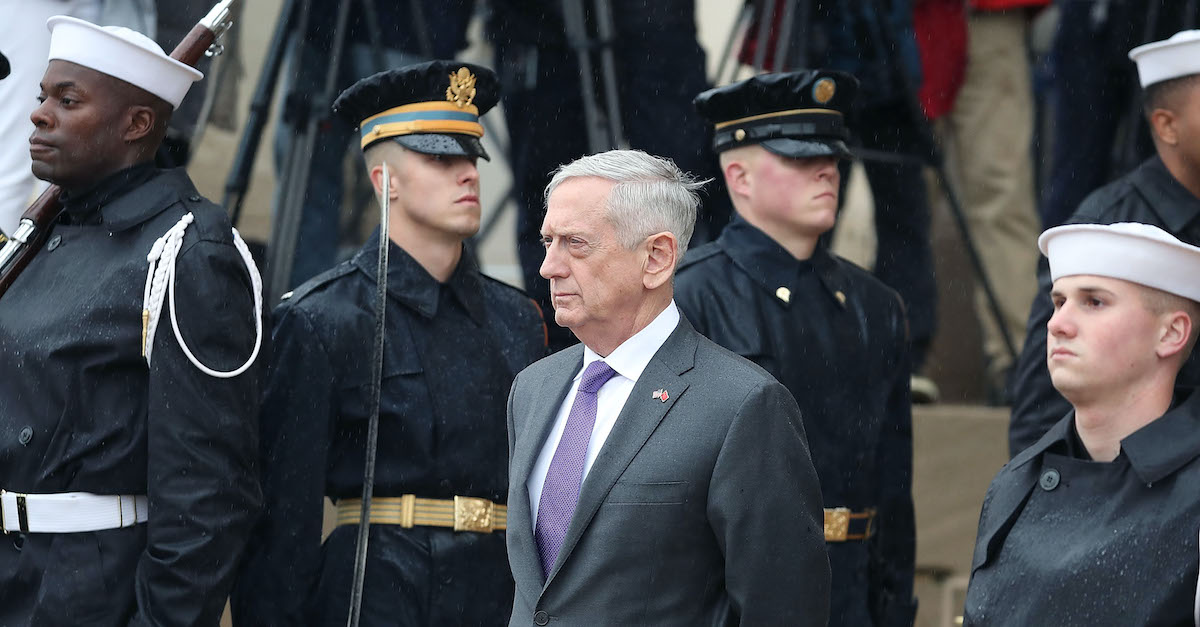
A federal judge in Seattle on Wednesday ordered former top Defense Department’s officials to be deposed as part of a lawsuit challenging President Donald Trump’s order banning transgender people from serving in the U.S. military. Under the order, Secretary of Defense-turned-Trump critic Gen. James N. Mattis, former Vice Chairman of the Joint Chiefs of Staff Gen. Paul J. Selva, former Under Secretary of Defense for Personnel and Readiness (and current Secretary of Veterans Affairs) Robert Wilkie Jr., and former Vice Chief of Naval Operations Adm. William F. Moran would all be interviewed regarding the genesis of the controversial policy.
The lawsuit was initially filed by Ryan Karnoski, a transgender man who dreamed of enlisting in the military. The suit was filed in Aug. 2017, one month after President Trump’s 2017 tweets announced that he was reversing the Defense Department’s year-old policy allowing transgender individuals to openly serve.
The tweets, when combined:
After consultation with my Generals and military experts, please be advised that the United States Government will not accept or allow Transgender individuals to serve in any capacity in the U.S. Military. Our military must be focused on decisive and overwhelming victory and cannot be burdened with the tremendous medical costs and disruption that transgender in the military would entail. Thank you
In the filed complaint, Karnoski alleged that Trump made the decision to appease his political supporters and failed to engage in “any meaningful study, deliberation, or consultation with key military officials.”
The central question before the court is whether the administration’s policy was simply “dictated” by the president without consideration of military needs or whether it was the result of “independent military judgment, separate and apart from the President’s Tweet.”
The government asked the court to quash the subpoenas, arguing that any depositions of former military officials was highly inappropriate and that the information being sought was privileged.
But in a 13-page order, Bill Clinton-appointed U.S. Senior District Judge Marsha J. Pechman ordered the depositions, reasoning that Karnoski had demonstrated the “extraordinary circumstances” necessary to justify deposing a former high-ranking government officials.
Pechman said that the policy shift was implemented despite it being roundly rejected by a special panel of military experts, noting that the testimony from the officials was likely the only way to find out what motivated the administration’s action.
“The Panel’s recommendation was rejected. Due to decisions made by the four subpoenaed witnesses and the Parties’ long-standing discovery dispute, the process that followed is particularly opaque,” Pechman wrote, emphasizing that notes weren’t even taken at future meetings. “Other than the basic framework described above, Plaintiffs have little insight into the decision to delay implementation of the Carter policy, the initial rejection of the Panel’s recommendations, the Panel’s final four meetings, the decision-making process about what data was provided to the Panel, or the process used in drafting the Report and Recommendation.”
While Pechman conceded that military personnel are entitled to a great deal of deference in their decision-making processes, she said that such deference “does not mean abdication” in the face of extraordinary circumstances.
Read the full decision below:
Karnoski Order by Law&Crime on Scribd
[image via Mark Wilson/Getty Images]